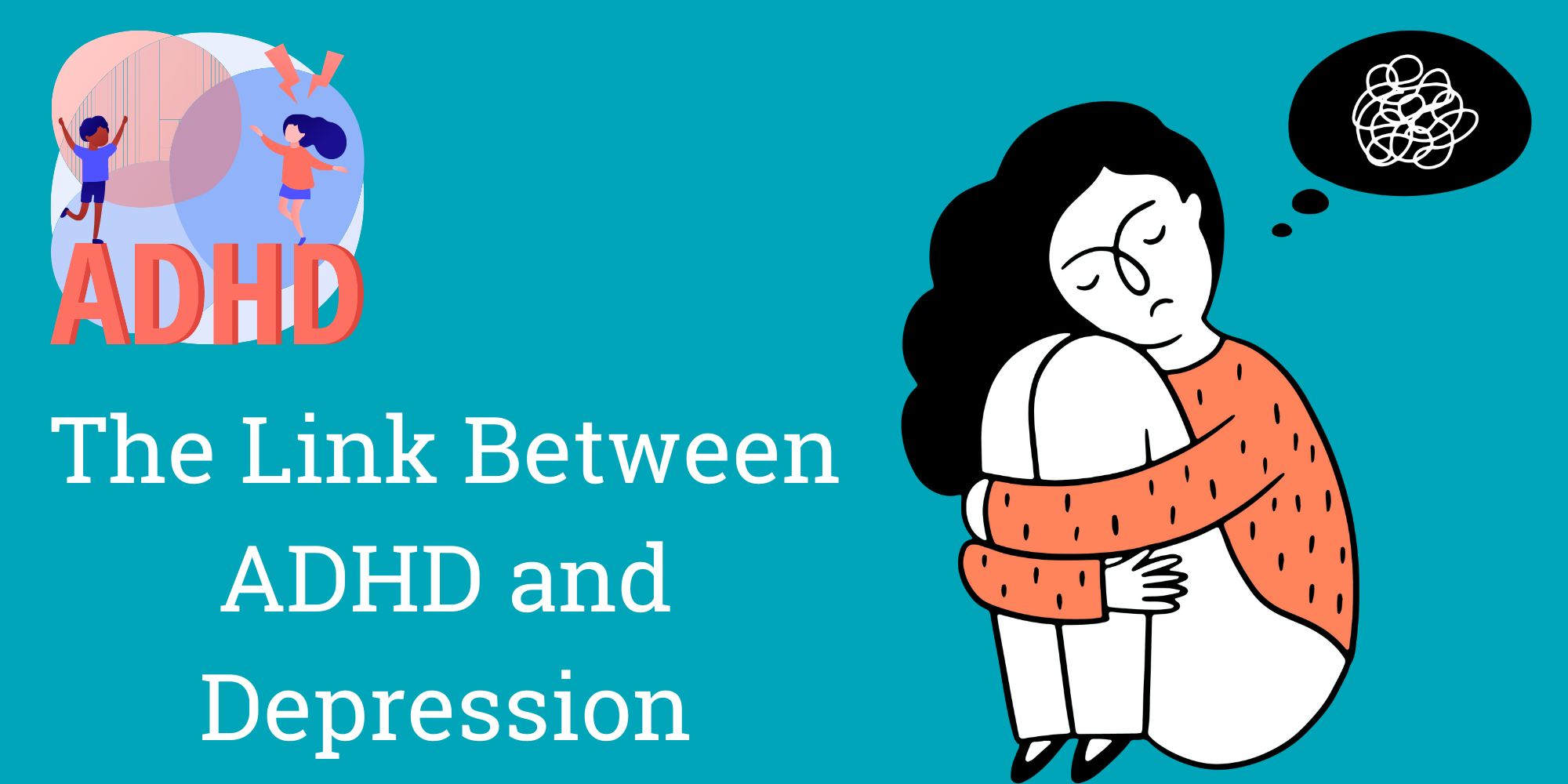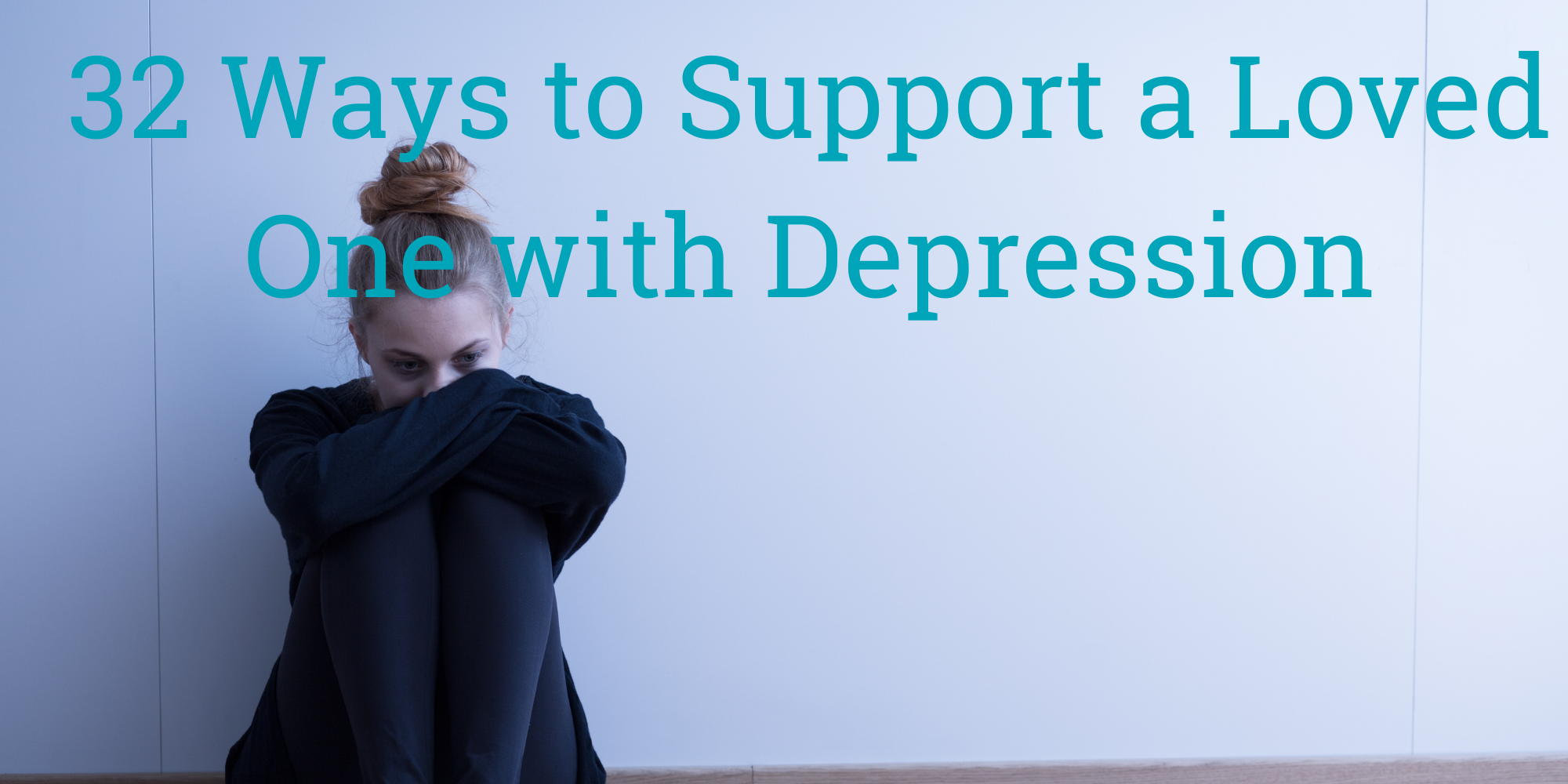
5 New Year’s Resolutions for 2022
Getting ready to celebrate the New Year? Are you making any New Year’s resolutions this year? New Year’s Resolutions don’t have to be out-of-reach goals. In fact, New Year’s Resolutions are the perfect opportunity to create some mental health goals for the upcoming year.
New Year’s Resolutions that Support Mental Wellness
Here are a few more goal-oriented resolutions that support mental health:
1. Add More Physical Activity to Each Day
Exercise is good for your body and your mind. It helps you sleep better at night (which is also good for your mental health), but it also reduces symptoms of anxiety and depression, according to recent studies.
Exercise — especially aerobic exercise — boosts your mood, reduces stress, reduces social withdrawal, and boosts your self-esteem. Examples of aerobic exercise include running, jogging, dancing, walking, hiking, swimming, and playing tennis.
Exercise-related goals don’t have to be intense workout regimens. You can sneak exercise into your day in many ways:
- Walking your dog an extra loop around the neighborhood
- Going to the local rec center and walking around the track while listening to podcasts
- Swimming with friends at a local YMCA
2. Practice Good Sleep Hygiene

It’s far too easy to stay up late watching another episode of your favorite show, but research shows that getting a reasonable amount of sleep each night can have many positive effects on your mental wellness.
Sleep hygiene tips include:
- Going to bed at the same time every night
- Avoid blue lights for 1-2 hours before bed (What’s a blue light? Find out here: Do Warm Lights Help You Sleep Better?)
- Sleep in a cool, dark room
- Spend some time in the sunshine each day as this helps reset your circadian rhythm
3. Pick Up a New Hobby
Hobbies — like knitting, reading, gardening, fishing — are good for your mental health, according to the Australian Government Health Department. You don’t have to be a pro to reap the rewards of a hobby. Just participating in a hobby can boost your self-confidence, promote feelings of relaxation, reduce stress levels, and improve your overall happiness.
Need a few ideas? Here are some common hobbies:
- Sports and exercise
- Fishing
- Gardening (indoor plants count too!)
- Music
- Drawing and painting
- Crafting, including knitting and crocheting
- Baking
- Reading
- Journaling
4. Spend Time in the Great Outdoors
Spending time in nature can also support your mental health. Just 20 minutes spent outside can make a big difference, according to the experts at Harvard.
Looking for activities to do outside? Check out this article to get a few ideas.
5. Seek Help When You Need It
This is perhaps the best resolution of all! Even with all of these resolutions, you might need a little extra support this year, and that’s okay! The best thing you can do for your mental health is to ask for help if you need it. As a multidisciplinary practice, we can support a variety of mental health conditions with therapy, medication, lifestyle changes, coaching, and more here at NextStep2MentalHealth. Our team of psychiatrists and therapist are here to help adults, teens, and children.
We’re just a call or click away. Call 502-339-2442 or send us a message to request more information.
Learn More
What Is Generalized Anxiety Disorder (GAD)?
Generalized anxiety disorder or GAD is a condition wherein a person displays an excessive, uncontrollable, and sometimes irrational worry about every day…
Learn More
ADHD and Depression Connection
There are many types of depression: major depression, postpartum depression, bipolar depression, and seasonal affective disorder. Not only are there many types of depression, but depression can also occur at the same time as other mental health conditions. It’s very common for those with anxiety or ADHD to also have depression. This is called comorbidities.
Here at NextStep2MentalHealth, our multidisciplinary team of experts excel at diagnosing and treating comorbidities, including ADHD and depression.
In this article, we take a closer look at the ADHD and depression connection.
The ADHD and Depression Connection
Here are a few quick facts from the video:
- 30% of those with ADHD experience depressive episodes
- Dopamine is responsible for reward systems, mood, and those with ADHD may not have access to as much dopamine
- This leads to the potential feeling like “you’re running on half a tank”
- Those with ADHD may struggle more with emotional dysregulation, which means it can take longer to soothe after difficult emotions
Dopamine is a type of neurotransmitter, and it’s often called the “feel good” hormone. Your body makes it, and your nervous system uses it to send messages between nerve cells. Low levels of dopamine may contribute to feelings of depression.
Do You Have Depression?
If you have ADHD, you might also suspect you have depression if you can’t shake intense sad feelings, notice changes to your eating and sleeping routine, feel worthless or guilt, and lose passion for your favorite hobbies.
You can learn more about depression in these resources:
- How Untreated Depression Can Impact Your Health
- Teen Depression: What to Look For and How to Help
- 32 Ways to Help Someone with Depression (When They Don’t Want to Talk About It)
- 8 Risk Factors for Depression
- Do You Have Depression or Seasonal Affective Disorder?
- Overcoming the Negative Self-Talk Cycles of Depression
- 6 Uncommonly Thought Of Depression Symptoms That Shouldn’t Go Unnoticed
Treating ADHD and Depression

If you have both ADHD and depression, you need treatment that addresses the complexities of each condition. For example, you may benefit from strategies that promote emotional regulation. Other treatments for both ADHD and depression include:
- Medication (depression and ADHD both benefit from different types of medication)
- Lifestyle modifications, including regular exercise, good sleep hygiene, eating a balanced diet, and practicing stress management techniques
- Therapy
What to Do If You Think You Have Depression
With the right treatment, you can manage the symptoms of both of these conditions. Here at NextStep2MentalHealth, our team of experienced providers is skilled at diagnosing and treating many types of depression, including major depression, seasonal depression, and postpartum depression as well as adult and child ADHD.
If you’d like to make an appointment with our compassionate and knowledgeable providers, click here to make a telehealth or in-person appointment in our Louisville, Kentucky office. You can also call us at 502-339-2442.
Learn More
10 Signs of Hypomania
Individuals with bipolar 1 disorder may experience mania, while individuals diagnosed with bipolar 2 disorder are more likely to experience hypomania. Hypomania is typically more mild than mania and doesn’t last as long as manic episodes.
Both hypomania and mania are periods of excited behavior that can have a significant impact on your daily life. If you suspect you have hypomania or mania, our multidisciplinary team encourages you to reach out to us for a bipolar evaluation.
In the meantime, let’s take a look at what hypomania is and how it’s treated.
10 Signs of a Hypomanic Episode
1. Extremely talkative
While some people are naturally more talkative than others (which is normal and okay!), a sudden shift to being more talkative than normal (whatever is normal for you) can be a sign of hypomania. This includes:
- Not being able to listen to others or letting others talk because you’re talking
- Talking very rapidly
- Talking very loudly
- Jumping from topic to topic
2. Elation or giddiness
It’s normal to experience highs and lows throughout your day, but a sudden giddiness (without any clear cause) can be related to hypomania. These moods are marked by feelings of elation and euphoria and increased energy levels.
3. Irritability
While elation and giddiness are linked to hypomania, the flip side is also true: you may see a marked increase in irritability. This includes:
- Being argumentative
- Being easily agitated
- Feeling easily irritated by everything
- Rapid mood swings
- “Rage” attacks
- Children in a hypomania episode may swing quickly from irritation to elation.
4. Decreased need for sleep
Manic episodes are often marked by periods of extreme energy. During a manic episode, you might not feel the need to sleep, or you may get by with very little sleep. Hypomania is also marked by a decreased need for sleep and lots of energy.
5. Racing thoughts
Racing thoughts can cause you to shift quickly from one topic to the next. Some people describe this as a swirl of thoughts in which your words can’t keep up with your thoughts.
6. Grandiosity
Grandiosity is a symptom experienced during both manic and hypomanic episodes. People experiencing grandiose delusions often describe larger-than-life feelings. This can include feeling invincible, superior, or invulnerable.
7. High energy
Even without adequate sleep, hypomania can lead to high energy.
8. Distractibility
Can’t focus? Easily distracted? These can be signs of many mental health conditions, including anxiety, ADHD, and bipolar disorder. A proper diagnosis ensures you get the right treatment, so don’t hesitate to share all of your symptoms, including distractibility.
9. Impulsivity
Along with racing thoughts and high energy comes impulsivity.
10. Increased goal-directed activity
Have you started multiple projects? This could be a sign of increased goal-directed activity. When paired with excess energy and little sleep, you could get swept up in the whirlwind.
Are You Dealing with Hypomania or Mania?

Bipolar Treatment in Louisville, Kentucky
Because bipolar disorder can profoundly impact your life, it’s essential to work with a compassionate and experienced provider who understands the complexities of this disorder. At Next Step 2 Mental Health, we know that living with bipolar can be challenging, but the right treatment can help.
Treatments include:
- Medication
- Psychotherapy
- Therapy
If you or a loved one are experiencing any of the signs of Bipolar Disorder – or need help managing Bipolar Disorder — we can help you take your next steps. Call our office today at 502-339-2442, or book an appointment online.
Learn More
Learn about Seasonal Affective Disorder
Fall is just around the corner. While the thought of pumpkins and cozy sweaters might be exciting to some people, the thought of less sunshine and colder weather is less-than-thrilling for others.
For some people, saying goodbye to summer can trigger seasonal affective disorder (SAD), a type of depression that’s linked to changes in the seasons.
But how do you know if you just happen to like summer more than fall — or if you have SAD? In this blog, we take a closer look at what SAD is and how to know if you need to discuss SAD with your provider.
How Do You Know If You Have SAD?
Common symptoms of SAD include:
- Sleeping a lot but still feeling tired
- Changing in appetite, especially craving sweets and carbs
- Low energy
- No interest in your favorite activities
- Feeling sad
- Difficulty concentrating or focusing
- Feeling worthless
SAD can start at any age, but it most often starts to affect adults between the age of 18 and 30. If you think your symptoms might be related to SAD, you’ll need an accurate diagnosis before embarking on any treatment plan. Many mental health conditions share similar symptoms (such as trouble concentrating), which makes an evaluation that much more important.
To be diagnosed with SAD, a person must meet specific criteria:
- Have the symptoms of major depression
- The depressive episodes must occur during specific seasons (i.e., only during the winter months or the summer months) for at least 2 consecutive years
Sunlight goes down. Sadness goes up.
Treating Seasonal Affective Disorder
SAD can be treated with both lifestyle modifications and medication. Common treatments include:
- Spending as much time in the sunlight as possible (e.g., an early morning walk)
- Light therapy (which involves sitting near a light box that generates 10,000 lux
- Psychotherapy
- Medication, including antidepressants
- Vitamin D supplements (studies show that individuals with SAD are more likely to be deficient in vitamin D)

Help Is Here
With the right treatment, you can feel better. Here at Next Step 2 Mental Health, our team of experienced providers is skilled at diagnosing and treating many types of depression, including major depression, seasonal depression, and postpartum depression. If you’d like to make an appointment with our compassionate and knowledgeable providers, click here to make a telehealth or in-person appointment in our Louisville, Kentucky office. You can also call us at 502-339-2442.
Learn More
Social Anxiety in a Post-Pandemic World
Warning Signs that Your Social Anxiety Is Spiraling Out of Control
How do you know if your social anxiety is being exacerbated by the return to “normal”? Below are four signs that should be aware of:
Are you:
- Experiencing an increase in the intensity of fear?
- Experiencing a sense of dread or doom?
- Canceling or avoiding in-person events? (including work and social commitments)
- Noticing an increase in physical symptoms such as stomach distress, shaking, heart palpitations, panic attacks, or blushing?
5 Ways to Support Your Partner with Social Anxiety Disorder
If you’re spouse or partner is struggling with social anxiety disorder, you might wonder how you can best support him or her during this time of transition. Below are five tips to support and encourage your partner.
1. Offer encouragement.
Offer encouragement and support, but learn about the right kind of encouragement to offer that neither accommodates (i.e., enables) the self-isolation nor criticizes the partner for their behaviors. You may benefit from support groups or from talking to your spouse’s therapist — we’ll cover this more in the next tip.
2. Encourage professional support.
“The good news is that social anxiety is treatable. Medication and specialized forms of therapy such as Cognitive Behavioral Therapy and Exposure and Response Prevention have been shown to be extremely helpful in reducing, and sometimes eliminating social anxiety,” Dr. Briscoe reminds us.
Consider this: Setup an appointment to visit with your partner’s specialized social anxiety therapist to discuss how you can support the work that your partner and therapist are engaged in. Therapists providing CBT with persons with social anxiety are generally very happy to involve loved ones in their clients’ care, and provide some very helpful recommendations for you to assist and support the process of healing.
A board-certified psychiatrist should be able to recommend and direct you to a therapist or psychologist in your local community with experience and expertise in treating social anxiety, and provide medication to help alleviate symptoms if necessary.
3. Seek out a support group for yourself.
You might also consider finding a support group dedicated to spouses of individuals with social anxiety. You can find support groups for individuals or spouses of individuals with social anxiety.
4. Seek to learn everything you possibly can about social anxiety disorder.
Here are a few reputable resources:
- National Alliance on Mental Health – Provides some excellent recommendations for family members/partners of persons struggling with all types of anxiety disorders. You can also learn what to do and what not to do.
- National Institute of Health – General information/education on social anxiety.
- National Alliance on Mental Health (support) – Source of support for family members/partners of persons struggling with social anxiety and other anxiety disorders. Potential resource for support groups for family members/partners.
What to Do If You Notice the Symptoms of Social Anxiety

The signs and symptoms of social anxiety vary from person to person, but in general, symptoms include:
- Staying away from or avoiding places where there are a lot of other people
- Finding it difficult to spend time around other people, especially if you don’t already know them
- Feeling very self-conscious in front of others, to the point that it can impact your social and personal relationships
- Feeling embarrassed easily
- Physical symptoms including blushing, sweating, rapid heart beat, trembling and shaking
- Feeling nauseous
Note that these symptoms may increase when engaged in social settings such as giving a presentation at work, talking to coworkers, attending social events, meetings, etc. If you notice any of these signs and are struggling to overcome them, it may be a good time to seek professional help.
Explore Your Next Steps
Untreated social anxiety can make it difficult to perform well (or comfortably) at work or in social settings. However, treatment can help you feel more comfortable. At NextStep 2 Mental Health, we know that the pandemic can profoundly impact your mental health. We provide comprehensive social anxiety treatment — pandemic or not. Whether you’ve already been diagnosed or you are just now starting to see the signs, we can help you feel better. Give us a call at our Louisville, Kentucky office at 502-339-2442, or send us a message to request more information.
You can also request an appointment with our convenient scheduling tool here.
About Dr. Briscoe
 Dr. Brian Briscoe is a board-certified psychiatrist and the medical director of adult programs. Dr. Briscoe was voted a “Top Doctor” by Louisville Magazine. You can make an appointment with Dr. Briscoe here .
Dr. Brian Briscoe is a board-certified psychiatrist and the medical director of adult programs. Dr. Briscoe was voted a “Top Doctor” by Louisville Magazine. You can make an appointment with Dr. Briscoe here .
How Does Sunlight Improve Your Mental Health?
Do you ever notice how sometimes it just feels good to bask in the sun? Imagine laying on the beach and getting lost in a good book, or simply sitting on your porch soaking up the sun rays. What is it about sunlight that makes you feel lighter? (Pun intended.) The answer is that the sunlight has an impact on your mental health, and in this blog, we’re going to uncover that link.
Sunlight and Serotonin
When you think of the sun, what do you think about? There are many things that could come to mind. The sun:
- Lights up the earth
- Warms the earth
- Allows us to tell time
- Can cause sunburns
- Is pivotal to the growth of plants (hello, photosynthesis!)
The sun also provides plenty of mood-lifting benefits. The sunlight (and the lack of sunlight during the night) trigger certain hormones in your brain. The daily cycles of lightness and darkness help to set your circadian rhythm. Sunlight triggers a specific hormone called serotonin. This hormone is known for elevating your mood, creating calmness, and increasing focus. But what about the darkness? As the light levels decrease throughout the day, the decrease in lighting triggers a different hormone: melatonin. This is the hormone that makes you feel sleepy at the end of the day.
Being exposed to both the light of day and the dark of night helps to set your circadian rhythm. However, if you don’t get enough sun exposure, you could miss out on the boost in serotonin levels from the sun. Low levels of serotonin are associated with a higher risk of seasonal affective disorder. You can learn more about seasonal affective disorder here.
How Sunlight Triggers Serotonin Production

When sunlight enters your eyes, it stimulates the parts of your retina that then cue your brain to produce serotonin. (via PBS)
This is why you’re more likely to experience seasonally-influenced episodes of depression during the winter. However, SAD doesn’t just occur during the winter months. According to the National Alliance on Mental Illness, approximately 1 in 10 people with SAD experience it in reverse, meaning during the warm months of summer.
- Major depression
- Seasonal affective disorder
- Generalized anxiety disorder
- Panic disorder
The sunlight’s benefits extend to children and adults. Try to get out in the sunshine for at least 15 minutes every day.
Tip: Wear sunglasses and sunscreen if you’ll be out for prolonged hours though!
Health Benefits of Sunshine
The sunshine benefits your whole body. Here are a few more ways that the sunshine can promote overall wellness:
Stronger Bones
You’ve probably heard that the sun gives you your daily dose of vitamin D. Specifically, it’s the exposure to the ultraviolet-B radiation that triggers your skin to produce vitamin D.
Without enough vitamin D, you have an increased risk of developing rickets, osteoporosis, or osteomalacia.
Reduced Risk of Certain Cancers
It’s no secret that excessive UV exposure can increase your risk of skin cancer, but the right amount of sunlight can actually reduce your risk of other cancers. According to information published in an article called “Vitamin D and Sunlight: Strategies for Cancer Prevention and Other Health Benefits”, individuals who live in low sunlight areas are more likely to experience certain types of cancer, including prostate cancer, pancreatic cancer, and colon cancer. Interestingly, the article notes that the connection between lack of sunshine and certain cancer was reported as early as 1915!
Healing Certain Skin Conditions
Light therapy, specifically therapy with UV radiation, has been reported by the World Health Organization (WHO) to treat certain skin conditions, including eczema, acne, jaundice, and psoriasis. Some pediatricians even advise parents to let babies soak up sunshine if they are born with mild cases of jaundice.
Improved Sleep
Because the sunlight helps to set your circadian rhythm, getting sunlight in the morning can actually help you sleep better at night. This can help improve your mood, boost mental clarity, and support your immune system.
When the Sun Isn’t Enough
While sunlight supports your mental and physical wellness, sometimes it’s not enough to boost your mood. Depression can have many contributing factors beyond sunlight.
At Next Step, we know how profoundly any mental health condition can impact your life. Our compassionate, non-judgmental team offers a variety of treatments for a range of mental health conditions, including anxiety, depression, PTSD, bipolar, and ADHD.
To reclaim control over your life, call our Louisville, Kentucky office at 502-339-2442. You can also request an appointment online.

8 Risk Factors of Depression
Risk factors for diseases are the things that increase the likelihood that you’ll get the disease or condition. Risk factors don’t guarantee you’ll develop the condition, but they do raise your risk. For example, inactivity is a risk factor for heart disease. Leading a sedentary lifestyle doesn’t mean you’ll 100% develop heart disease, but it does increase your risk. Just like there are risk factors for diseases like heart disease, there are also risk factors for mental health conditions too. In this blog, our team of experts explores the risk factors associated with depression.
1. Family History of Depression
Having a family history of depression can increase your risk for developing the condition too. Remember, though, that there are many ways you can support your mental health, even if you don’t have any symptoms of depression. Eating well-balanced meals, staying active, getting enough sleep, managing underlying health conditions, and managing stress all go a long way in supporting your mental health.
It’s also important to know the symptoms and signs of depression so that if you can receive treatment as soon as possible.
2. Sedentary Lifestyle
According to the experts at Johns Hopkins, inactivity can also exacerbate or add to feelings of depression. Inactivity affects your mental and physical wellness in many ways. Not only does a lack of physical activity increase your risk of obesity and diabetes, it also affects your mood. This is true for both adults and children. A lack of physical activity during adolescence is linked to a higher rate of depression by the age of 18.
The good news is that this is a risk factor within your control. Research shows that exercise (especially if it’s outside) can improve your mood. You don’t need to be a marathoner to experience the benefits of exercise. Even little strides to add more physical activity into your day can help support your mental wellness.
You can add more physical activity into your day by:
- Getting up every hour to stretch your legs and walk around
- Walking an extra block when you walk your dog
- Going for a short walk after dinner or on your lunch break
- Taking the stairs instead of elevator, when applicable
- Dancing in your living room
- Playing tag or catch in the yard with your kids
- Going for a hike on the weekend
You can also try at-home workouts.
3. Underlying Medical Illnesses and Chronic Pain
In addition to your family history, your own personal medical history can also play a role in your depression diagnosis. Medical illnesses — including cancer, stroke, and Parkinson’s disease — can increase your risk of depression. Hormonal shifts, including menopause, thyroid disorders, and testosterone deficiency, can also increase the risk of depression. Hormonal shifts after childbirth can also increase your risk of developing a specific type of depression called postpartum depression.
Chronic pain (from arthritis, cancer, neuropathy, etc.) is also linked with increased risk of depression.
4. Age
Age is another risk factor for depression. Lack of activity, death of a loved one, isolation (in a nursing home), age-related insomnia, increasing health conditions can all increase the risk for depression in the elderly. Unfortunately, the elderly are often undertreated when it comes to depression. Depression can present in many ways, including fatigue, sleeping more, and loss of appetite. If you’re feeling blue and the feelings just don’t let up, don’t hesitate to reach out.
5. Insomnia
Not sleeping well isn’t a risk factor of depression just for the elderly. No matter what age you are, if you’re not sleeping well, it can impact your mental health.
“Depression and sleep problems are closely linked. People with insomnia, for example, may have a tenfold higher risk of developing depression than people who get a good night’s sleep. And among people with depression, 75 percent have trouble falling asleep or staying asleep.” (source)
If you’re not sleeping well, now is the time to improve your sleep hygiene. You can learn more about sleep hygiene here.
6. Stress
Sometimes stress is a good thing. The stress of a deadline at work can motivate you to get the project done. However, chronic, unmanaged stress can take a toll on your physical and mental wellness. If you’re not coping well with chronic stress, you’re more likely to become depressed and/or anxious.
Stress management techniques include:
- Exercising
- Yoga
- Meditation
- Deep breathing
- Time management
You can learn more about how stress impacts your brain here.
7. Big Life Changes
Change is hard for many people, and how well you handle stress can impact your mental health. Even positive changes can increase your risk for depression if you’re not prepared. Examples of big life changes include:
- Buying a new house
- Getting married
- Having a child
- Moving to a new state
- Experiencing the loss of a relationship
- Experiencing the loss of a loved one
- Getting a new pet
- Starting a new job
Remember, just because you experience a big life change doesn’t mean you’ll definitely develop depression. However, you can further reduce your risk of becoming depressed by preparing for big changes as much as possible. You can embrace change by:
- Focusing on what you can control
- Acknowledge your fears but take action anyway (it’s okay to feel nervous starting a new job or moving to a new state, but don’t let it stop you from pursuing your dreams!)
- Accept and engage with grief (rather than avoiding dealing with it)
8. Certain Medications
Certain medications can increase your risk for depression. This includes sedatives, sleeping pills, some seizure medication, and certain medications for heart problems and asthma. If you suspect that your feelings of depression are linked to your medication, don’t hesitate to reach out to your prescribing provider.
When You Can’t Avoid the Diagnosis
At Next Step 2 Mental Health, we know how profoundly any mental health condition can impact all aspects of your life, and if you’re struggling now, you don’t have to wait until it gets worse before reaching out for help. Our compassionate, non-judgmental team offers a variety of treatments, including medication and therapy.
To reclaim control over your life, call our Louisville, Kentucky office at 502-339-2442. You can also request an appointment online.
Learn More
Teen Depression: Signs to Look For & How to Help
Teenage depression isn’t just “a mood swing” or sadness. Depression is a serious mental health condition that can affect teenagers and adults alike. Teen depression can impact your teenager’s mental wellness, physical health, academic performance, and relationships with friends and family.
Here at Next Step 2 Mental Health, our compassionate providers are experienced in treating depression in teenagers, and if you suspect your child is struggling, we encourage you to call us.
In the meantime, you can learn more about depression in teenagers in the article below.
What Are the Signs of Depression in Teenagers?
As with adults, teen depression can affect teens in many ways. Some of the common symptoms of depression include:
- Feelings of sadness
- Low self-esteem and low self-worth
- Feelings of guilt
- Changes to appetite (eating more or less)
- Changes to sleep (sleeping more or less)
- Fatigue
- Loss of passion for favorite hobbies
- Anger
- Difficulty feeling happy
- Feeling anxious
- Headaches or stomach pains
You might notice your teen start to struggle in school or lose interest in extracurricular activities (including spending time with friends). He or she may also seem more irritable.
Remember, Your Teen Isn’t Alone

Approximately 13% of American teenagers experience depression annually. According to a 2018 study, depression has increased (by 47% for boys and 65% for girls) from 2013-2018. Unfortunately, the coronavirus pandemic has further affected the mental health of Americans — teenagers included. The stress of the pandemic, changes to normal school routines, and missing socializing with friends are potential triggers for teens, according to the CDC.
Even though depression is common, it’s important to seek treatment if you spot the signs of depression in your child.
Depression is a serious condition, and it’s one that we take seriously here at Next Step 2 Mental Health. According to the Centers for Disease Control and Prevention, suicide was the second leading cause of death for teens in America in 2017. The CDC cites depression as a major risk factor for suicide.
If your child is in crisis, call 9-1-1. You can also reach the National Suicide Prevention Lifeline at 1-800-273-TALK (8255) for English, 1-888-628-9454 for Spanish.
The National Suicide Prevention Lifeline is a national network of local crisis centers that provides free and confidential emotional support to people in suicidal crisis or emotional distress 24 hours a day, 7 days a week. We’re committed to improving crisis services and advancing suicide prevention by empowering individuals, advancing professional best practices, and building awareness.
How Is Teen Depression Treated?
Even though depression can impact teens (and entire families), it can be treated, and with the right treatment, your teen may start to feel better. So, how is depression treated? Because depression is a complex illness, there isn’t a one-size-fits-all treatment, especially if your teen has co-occurring conditions, such as anxiety or ADHD.
Depression treatment often involves therapy as well as medication. Depression can trigger hopelessness, but remember, it is treatable. Learning about depression, offering a listening ear, and supporting your teen with the right treatment can help. Here at Next Step 2 Mental Health, our multidisciplinary team offers everything your teen needs under one roof, from medication management to therapy.
To learn more about depression or to schedule an appointment, click here.
Learn More
32 Ways to Help Someone with Depression (When They Don’t Want to Talk about It)
Depression can be debilitating, and if it’s your child or spouse or friend battling depression, you might wonder how you can help them. Even if your loved one doesn’t want to talk about it (which can be common), there are still ways you can be present and supportive.
Reminder: If you or a loved one are battling depression—or even suspect you might be— our compassionate team here at Next Step 2 Mental Health encourages you to reach out for help. Professional mental healthcare providers can help you learn strategies to make a positive difference in your life, despite the all-consuming nature of depression.
In the meantime, the video below highlights 32 ways you can support someone with depression.
If you or a loved one are in crisis, please contact the National Suicide Prevention Hotline at 1-800-273-TALK (8255), or call your local emergency services.
Additional Reading
You can learn more about depression, the signs of depression, and how to cope with it in these articles:
- 11 More Ways to Help Someone with Depression
- Learn more about Seasonal Affective Disorder
- How to Workout When You’re Depressed
- Surprising Signs of Depression
- Overcoming the Negative Self-Talk Cycles of Depression
We’re Here to Help You Take Your Next Steps
At Next Step, we know how profoundly depression can impact all aspects of your life. Our compassionate, non-judgmental team offers a variety of depression treatments, including medication and therapy.
If depression is keeping you from your potential, we can help. Call our Louisville, Kentucky office at 502-339-2442. You can also request an appointment online.
Learn More
